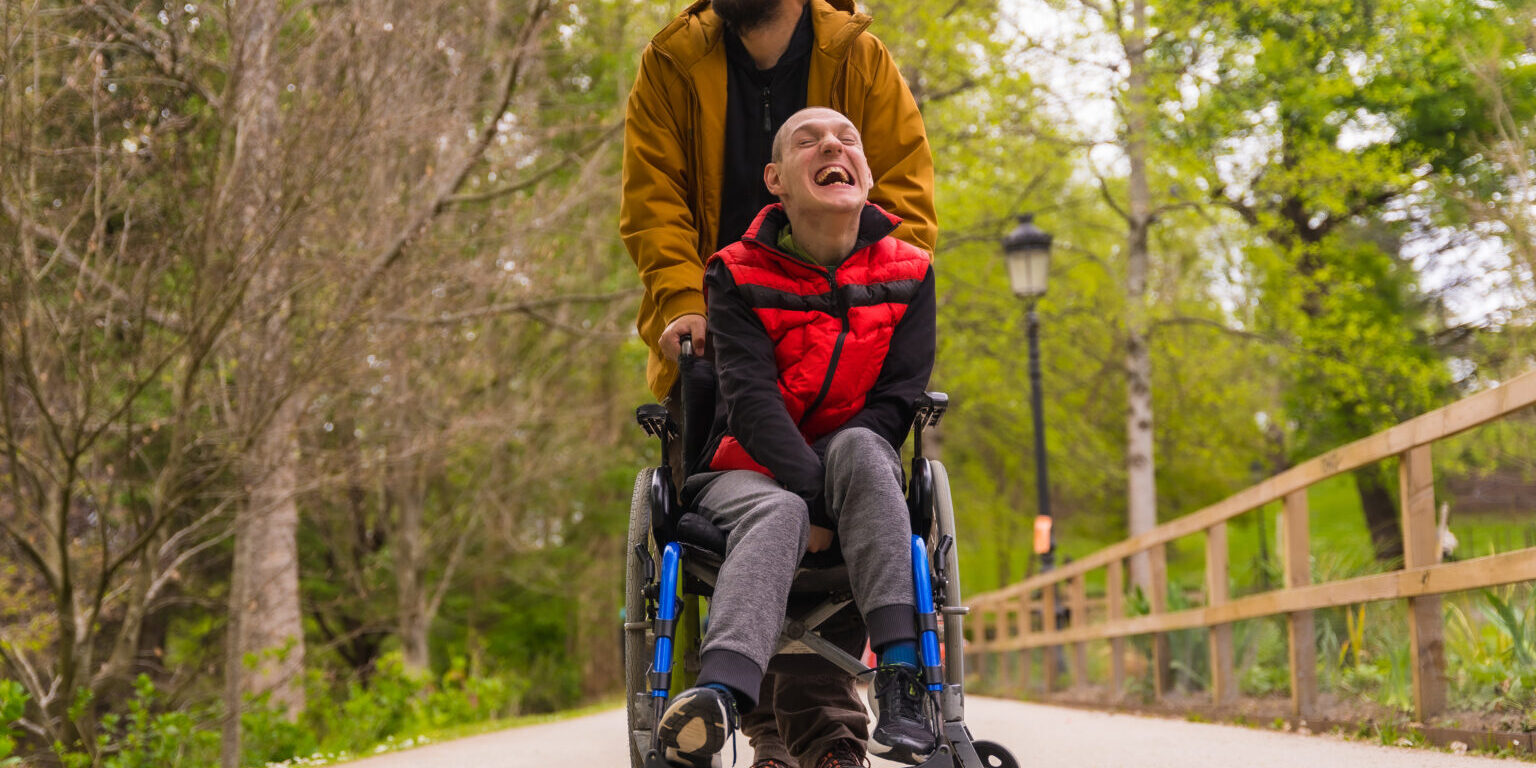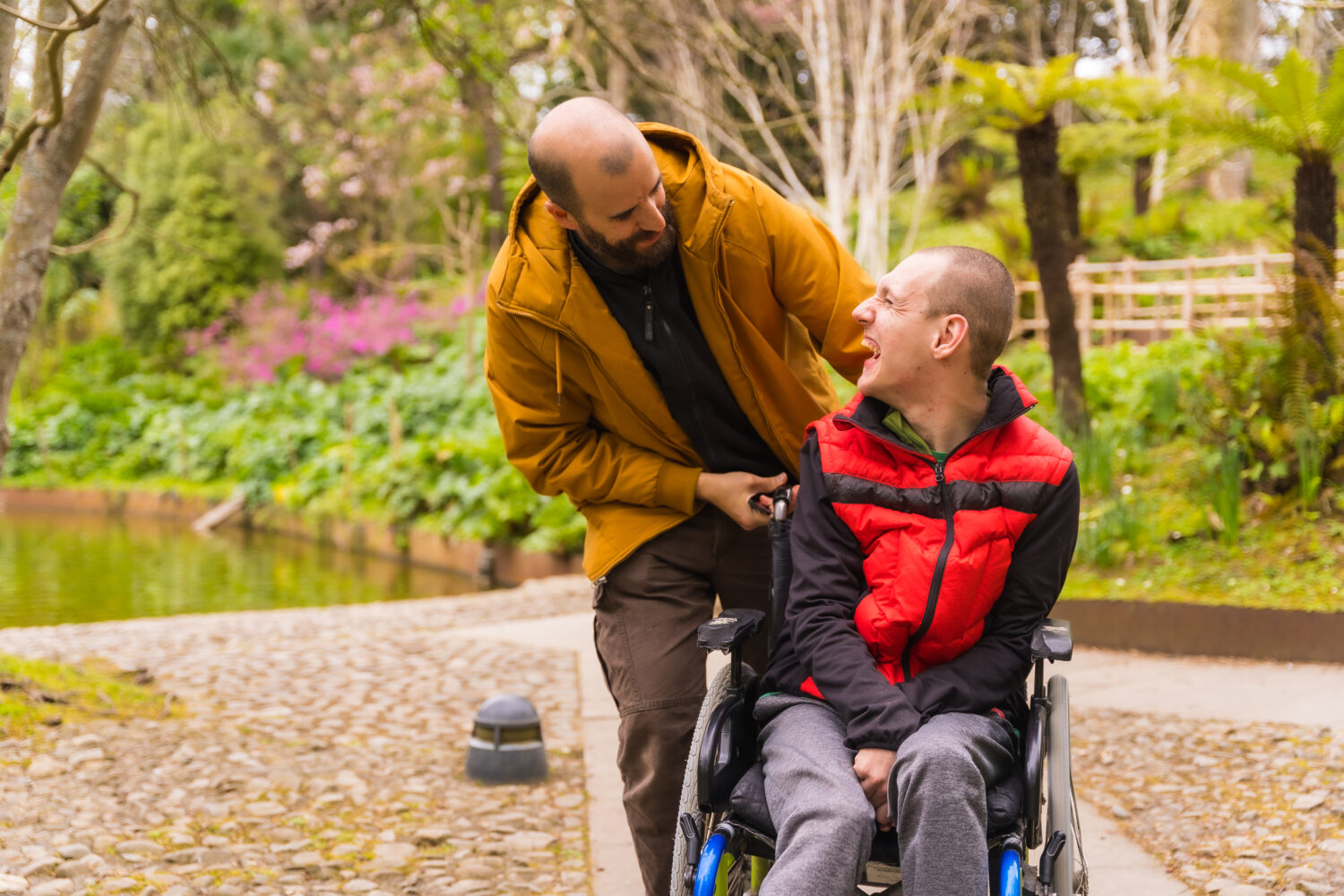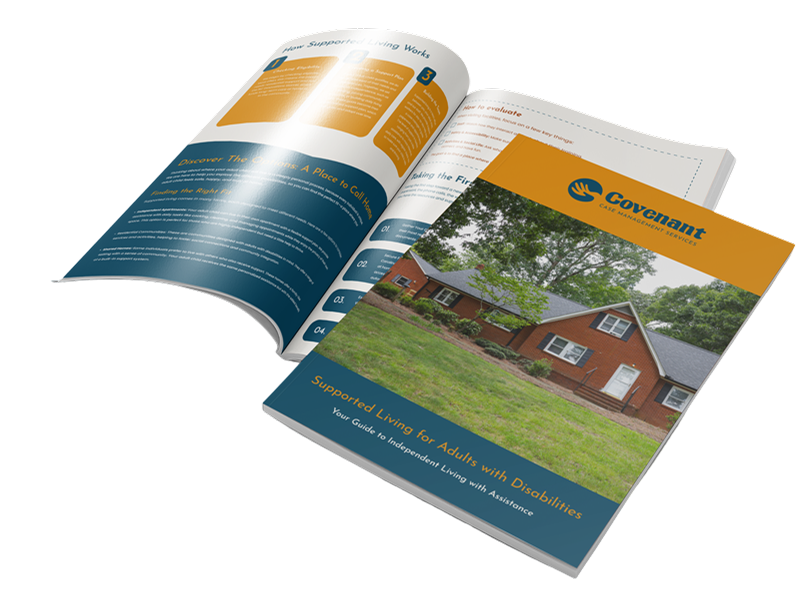
Types of Assisted Living: Facilities, Services, and Benefits for Disabled Adults
Covenant Team
Nov 10, 2025
Get the Guidance You Deserve, Right to Your Inbox
Whether you’re a caregiver, care professional, or individual seeking independence, We aim to keep you informed and inspired. Receive updates on services, events, and stories of hope by signing up to become a part of our email list below.
This transition in your adult child’s life is a huge step, and it’s natural to feel anxious about the process. You’ve been the heart of their world, the one who knows their every need and dream. Now, you’re thinking about future living arrangements that don’t involve you every step of the way.
Thinking about different types of assisted living is a sign of your great love and commitment to their independence. You want your adult child to live a life full of purpose, growth, and belonging. Finding a place where they get daily care and still explore their independence is essential. This article will walk through the available types of assisted living, the daily care support they offer disabled adults, and how to start the process.

Types of Assisted Living: Know Your Options
It’s so important to find a place that offers the right levels of assisted living care. To find abalance between safety and the freedom to grow. Here are the four of the most common and purpose-driven models you’ll find:
Supported Living and Individualized Apartments
This option focuses on maximizing independence. Your adult child can live in their own apartment or a shared supported living home with roommates, receiving tailored help with life skills like cooking and budgeting.
A major concern for caregivers is mixing support levels, like placing a Level 1 (more independent) resident with a Level 3 (higher support). To ensure a good fit, providers often match roommates based on the first occupant. This means if a Level 1 person moves in, the provider will seek other Level 1 applicants for that home, creating a compatible environment.
- Ideal for: Adults who are ready for a high level of assisted living care but value autonomy, can safely spend time alone, and want to continue improving their life skills.
Residential Care Homes and Group Homes
These are often smaller, homelike environments where a few adults with IDD live together, sharing a home and enjoying communal living areas. Staff is typically on-site 24/7 to provide consistent support, ensuring a structured and safe setting. Residential care homes are great for building friendships and peer support.
- Ideal for: Individuals who need round-the-clock supervision and support, benefit from a set routine, and thrive in a communal environment.
Alternative Family Living (AFL)
This unique model offers a deep, personalized level of care within a traditional family structure. Your adult child moves into the home of a trained host provider who becomes a dedicated caregiver and offers support in a family setting. This is a wonderfully personalized experience.
- Ideal for: People who benefit from a smaller setting, crave a warm, non-institutional environment, and want to build a deep, family-like relationship with a caregiver.
Programs Focusing on Skill-Building
Some services are designed to help your adult child gain skills right where they live, even if they stay in your family home. These are often known as Community Living and Support (CLS) services. The goal is to help them thrive in the community by improving their daily living skills at home.
- Ideal for: Individuals living at home or in supported apartments who need focused, individualized training to achieve their personal goals and enhance their quality of life.
What Services Does Assisted Living Offer?
Choosing assisted living for your adult child means getting the specific support they need to live well. The beauty of these residential programs is that the support is tailored to the individual. This ensures your adult child is safe, connected, and growing toward a purpose-filled life.
Support for Daily Life and Home
These services are the foundation of comfort and routine for your adult child. They help them feel at home and manage the necessary daily routines with ease.
- A Place to Call Home: Your adult child has their own private apartment, room, or space within a warm community setting. This gives them a sense of ownership, personal space, and true belonging.
- Personal Care Assistance: Staff members are there to help with essential routines like bathing, getting dressed, grooming, and personal hygiene. This support ensures their safety and comfort in a respectful way.
- Daily Living Assistance: This covers all the important parts of running a household and maintaining a routine. Support is available for tasks like cleaning, preparing meals, and managing laundry.
- Managing Medications: Help is provided to make sure your adult child takes the right medications at the right time. This critical support is vital for their health and peace of mind.
Focus on Health and Connection
The levels of assisted living care also include access to specialized support that focuses on overall health and community connection.
- Specialized Care and Supervision: Individualized care plans are created to meet your adult child’s specific needs. Staff is often available 24/7 to provide constant monitoring and support when required.
- Medical and Therapeutic Services: Residents have access to services like physical therapy and mental health support. This helps to keep them physically and emotionally healthy.
- Skill-Building for Independence: Programs teach important life skills like money management, cooking, and safe travel within the community. This targeted training helps residents build confidence and reach their independence goals.
- Social Activities and Community Access: Staff encourages your adult child to get involved in activities, social events, and volunteering. This involvement helps them build connections and fully participate in community life.
How to Begin the Application Process
Starting the process for any of the types of assisted living is a big step. Taking things one step at a time helps everything feel more manageable. Here are five simple steps to guide you:
- Assess Your Adult Child’s Needs: The first move is understanding what level of support your adult child needs most.
- Research the Options: Look into the different types of assisted living options in your area.
- Apply for Funding: Explore programs like Medicaid or look into disability housing grants to help cover costs.
- Schedule a Tour: Contact your preferred options to schedule a visit and see if it feels like the right match.
- Complete Admission: Once you find the right fit, you will complete the necessary admission forms to begin the care planning.
A Future Filled with Purpose
Your journey is unique, and it takes so much courage to seek out the best path for your adult child. Remember that exploring the different types of assisted living is an act of deep care. Every option, from supported living to residential care homes, is designed to help your adult feel a true sense of belonging in the world. This decision is about fueling a brighter future, one step at a time.To take the next step, you can contact us for a personalized consultation or explore our Community Living & Support and Supported Living services to explore the different options in more detail.
Download Your FREE Supported Living Guide!


